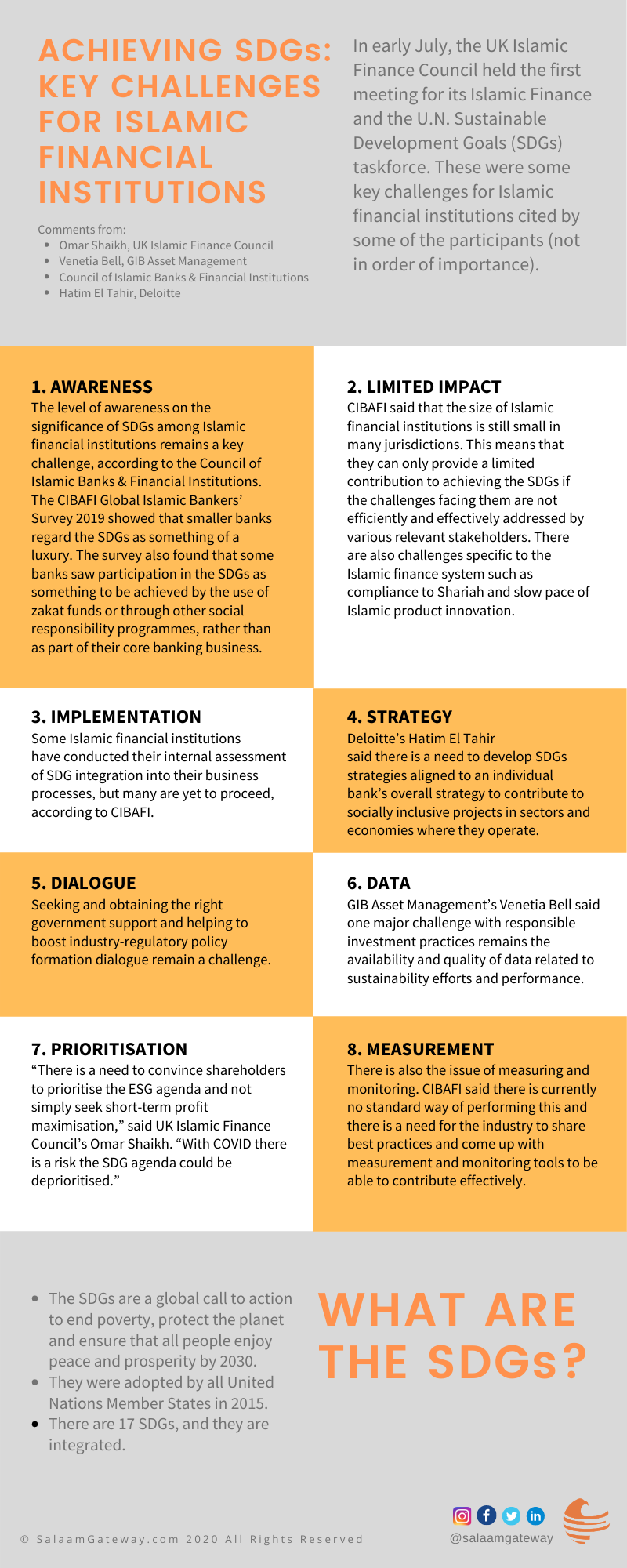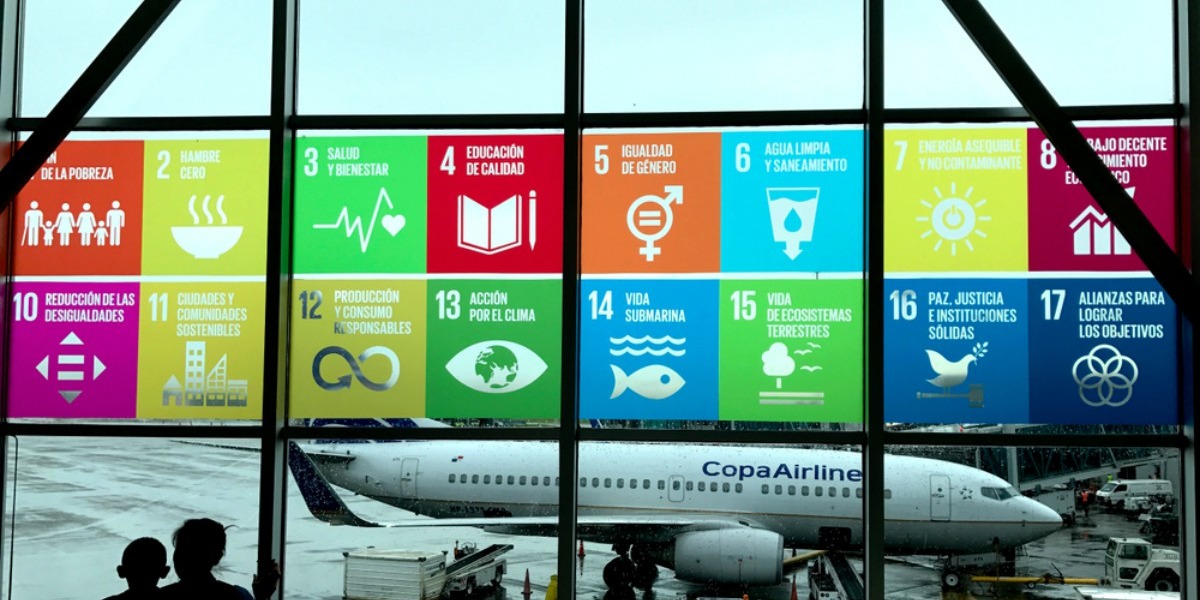From awareness to action: UK Islamic Finance Council SDGs taskforce looking for practical solutions
The UK Islamic Finance Council (UKIFC) hosted its first meeting, online, for its Islamic Finance and the U.N. Sustainable Development Goals (SDGs) taskforce in early July.
The taskforce is supported by the UK government’s Treasury department and its first meeting included industry leaders and delegates from the United Nations Development Programme, the Islamic Development Bank, and the Islamic Financial Services Board.
Omar Shaikh, board member of the not-for-profit Islamic finance advisory said subsequent meetings will shift from awareness to action and identifying practical partnerships. “We don’t want to be just a talking shop for SDGs, we are trying to come up with practical solutions,” he told Salaam Gateway.
He explained that the terms of reference the taskforce members have signed up to include promoting awareness, understanding and enabling practical adoption of the SDGs.
Hatim El Tahir, Director of Islamic finance at Deloitte believes that the UKIFC took three important steps: getting government support, as represented by HM Treasury, setting clear policy and practice objectives, and aligning global industry players that include regulators, practitioners and standards setters.
Other participants told Salaam Gateway the meeting was a positive first step in stakeholders sharing their experiences and exchanging ideas in how to incorporate SDGs and ESG into their operations.
Looking ahead, Omar Shaikh said the UKIFC aims to publish another two reports (the first was released in May) in the fourth quarter as well as launch a webinar series.
“The next Taskforce meeting will likely take place in the next 3-4 months,” he said. “We welcome finance ministers and regulators from other parts of the world as well UK government ministers.”
KEY TAKEWAYS FROM THE UKIFC SDGs TASKFORCE FIRST MEETING
Among the participants of the taskforce were Islamic financial institutions and industry bodies that have already introduced or adjusted their existing commercial activities as well as internal policies to incorporate SDGs and ESG principles.
JAIZ BANKMuhammad Kabir Muhammad, chief strategy officer of Nigeria’s Jaiz Bank said it has four different initiatives addressing the UN SDGs. “We incorporate the sustainability principles in the way we do business, ensuring that we not only run a responsible and profitable business, but that we give back to our communities, and manage our impact on people and the planet in line with Shariah principles,” said Muhammad.
|
AL BARAKA BANKING GROUPDr. Ali Adnan Ibrahim, Global Head of Sustainability & Social Responsibility at Al Baraka Banking Group, said that within two months of the U.N.’s announcement of the SDGs in September 2015, the bank released its Al Baraka Goals (2016-2020) that are linked to seven SDGs. They focus on job creation, financing healthcare and education.
|
Council of Islamic Banks and Financial Institutions (CIBAFI)
|
GIB ASSET MANAGEMENTVenetia Bell, Head of Strategy of GIB Asset Management in London said the firm’s business strategy is aligned with the principles and objectives of sustainable development. “Our vision as a business is to scale and mobilise capital in support of sustainable development,” she said. The firm invests in both conventional and Islamic assets.
|
KEY CHALLENGES

(Reporting by Hassan Jivraj; Editing by Emmy Abdul Alim [email protected])
© SalaamGateway.com 2020 All Rights Reserved
